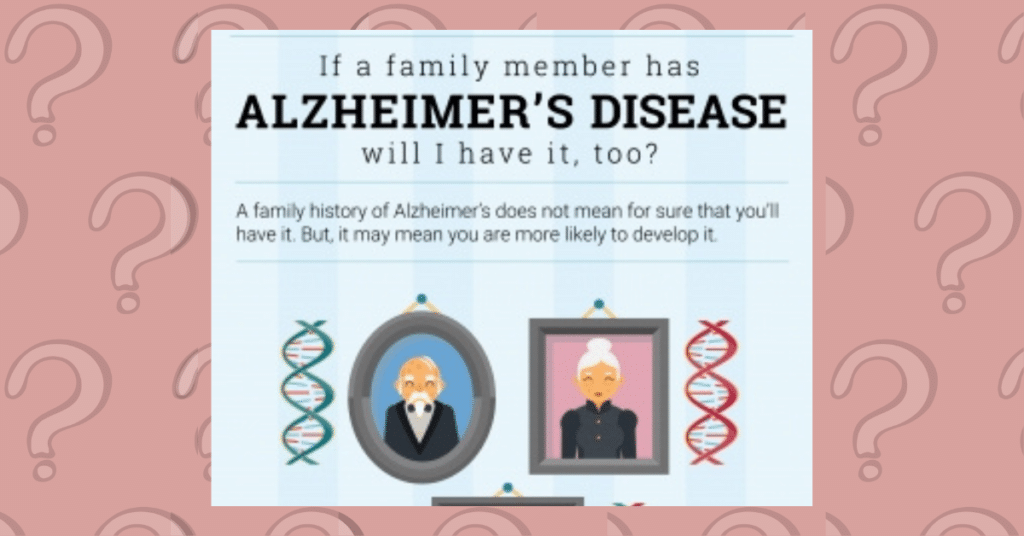
Families have many things in common, including their genes, environment, and lifestyle. Together, these things may offer clues to diseases, like late- and early-onset Alzheimer’s, that can run in a family.
There is no test yet to predict if someone will get late-onset Alzheimer’s, in which symptoms become apparent in a person’s mid-60s. If someone is worried about changes in his or her memory or other problems with thinking, he or she should talk with a doctor.
A doctor may ask the patient to make a family health history. A family health history can help a person know if Alzheimer’s disease runs in the family. It lists health facts about a person and close relatives. It is a written record of:
• A family’s health conditions
• Lifestyle habits like smoking and exercise
• Where and how family members grew up
A family health history can show patterns of disease and risk factors. Try to include health facts about three generations—grandparents, parents, and children.
To find out more about late-onset Alzheimer’s disease, as well as early-onset Alzheimer’s, and steps to maintain cognitive health, from the National Institute on Aging, CLICK HERE.

